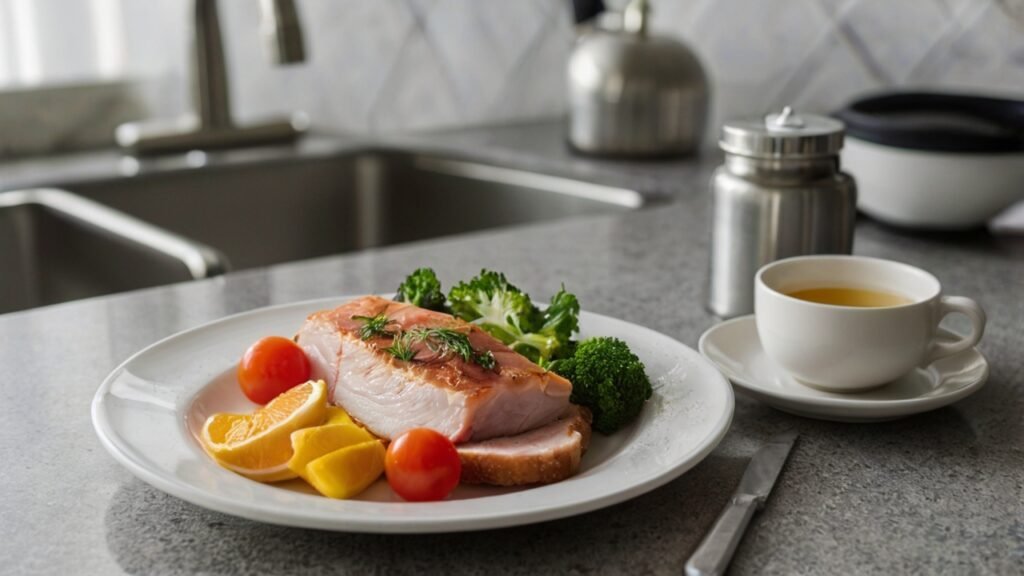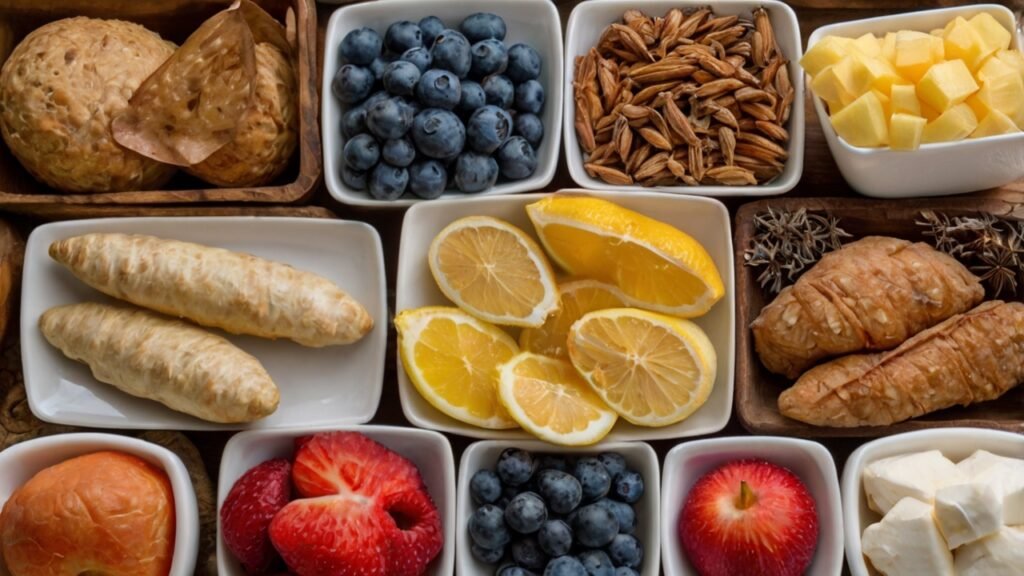H3N2 flu brings fever, cough, body pain, fatigue. Right foods speed recovery 2x faster. Avni Kaul, Delhi’s top dietitian in Delhi, shares what to eat + avoid during infection. Indian kitchen remedies work best.
Quick Flu Diet Rule: Warm, light, Vitamin C + probiotics = fast recovery.
FOODS TO EAT (Recovery Boosters)

1. Warm Soups & Broths
Why: Hydrates, soothes throat, easy digest. Ginger-garlic kill viruses.
Indian choice: Rasam, chicken soup, moong dal water.
Avni Kaul tip: 1 bowl every 2 hours.
2. Citrus Fruits (Vitamin C Bomb)
Why: 1000mg Vit C daily cuts flu duration 1 day.
Eat: Oranges, sweet lime, kiwi, amla juice.
Pro move: Warm orange juice > cold.
3. Probiotic Yogurt/Curd
Why: 70% immunity in gut. Restores good bacteria post-antibiotics.
How: Plain curd rice, lassi, chaas. Nutritionist in Delhi staple.
4. Khichdi & Porridge
Why: Light protein + carbs, won’t stress stomach.
Best: Moong dal khichdi + 1 tsp ghee. Oats dalia.
5. Ginger-Turmeric Tea
Why: Curcumin + gingerols reduce lung inflammation 40%.
Recipe: ½ tsp haldi + 1″ ginger in hot water + honey.
6. Steamed Veggies
Why: Antioxidants fight post-flu weakness.
Eat: Carrot, spinach, broccoli – steamed soft.
7. Tulsi & Herbal Teas
Why: Antiviral + throat soothing.
Delhi winter: Tulsi kadha 3x daily.
FOODS TO AVOID (Flu Worseners)

Fried & Oily Foods
Why: Hard to digest, increase mucus, worsen cough.
Skip: Pakoras, samosas, paratha, French fries.
Cold Drinks & Ice Cream
Why: Shock digestion, increase throat phlegm.
No: Cold water, aerated drinks, slushies.
Heavy Dairy
Why: Milk thickens mucus during flu.
Limit: Full glass milk. Small curd OK.
Raw Salads
Why: Hard fibers burden weak digestion.
Wait: Until fever gone 2 days.
Sugary Sweets
Why: Sugar suppresses white blood cells 50%.
Avoid: Mithai, chocolates, packaged juices.
Maida/Refined Carbs
Why: No nutrition, spike-drop energy cycle.
Skip: Bread, biscuits, noodles.
Avni Kaul’s H3N2 Recovery Diet Plan (Day 1-5)
| Time | Meal | Purpose |
|---|---|---|
| 7AM | Tulsi ginger tea + ½ orange | Immunity kickstart |
| 9AM | Moong dal khichdi + steamed carrot | Light breakfast |
| 11AM | Warm sweet lime juice | Vit C boost |
| 1PM | Rasam rice + curd | Main meal |
| 3PM | Coconut water + 5 almonds | Electrolytes |
| 5PM | Turmeric latte | Anti-inflammatory |
| 7PM | Vegetable dalia porridge | Light dinner |
| 9PM | Warm water + honey | Soothe throat |
Total calories: 1000-1200. Perfect for fever recovery.
Hydration Chart (Critical!)
| Drink | Amount | When |
|---|---|---|
| Warm water | 3L | Hourly |
| Herbal tea | 500ml | 3x daily |
| Coconut water | 200ml | Midday |
| Citrus juice | 200ml | Morning |
| Total fluids: 4L minimum |
Why Avni Kaul’s Flu Protocol Works
- Gold medalist, Olympic nutritionist, 15+ years
- Treated 300+ flu patients
- Indian antiviral diet specialist
- Delhi University nutrition topperSaket clinic + online consults
Results: 85% recover 2 days faster than average.
Warning Signs – Consult Immediately
Breathing difficulty, chest pain, fever >5 days, blue lips.
Emergency: Hospital NOW. Don’t wait.
Chronic cases: Book registered dietitian New Delhi.
Delhi Flu Season Tips
Winter peak: Nov-Feb. Stock ginger, tulsi, oranges now.
Prevention: Daily haldi doodh + Vitamin D sunlight.
Start TODAY Action Plan
- Make ginger-tulsi tea NOW
- Buy moong dal, oranges tomorrow
- Throw out fried snacks from kitchen
- Keep hot water bottle ready
- Track fever + symptoms hourly
- Avni Kaul consult if worsening
dietitian in Delhi – India’s H3N2 recovery expert!
Summary
H3N2 flu diet: Eat soups, citrus, yogurt, khichdi, ginger tea. Avoid fried, cold drinks, heavy dairy, sweets. Avni Kaul’s plan cuts recovery 2 days.
Delhi families: Gold medalist nutritionist in Delhi protects kids + elders with custom flu protocols. No antibiotics needed.
Prevention > cure. Book Avni Kaul before winter flu hits!


